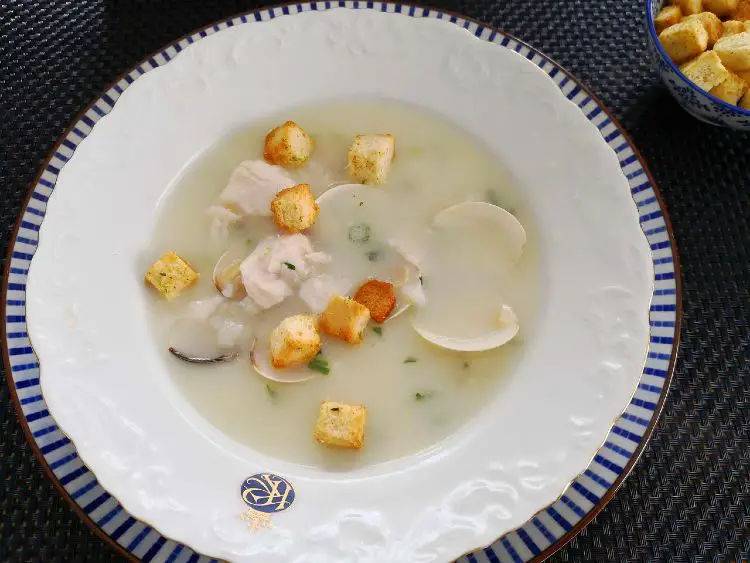“Consider The Fork – A History of Invention in the Kitchen” by Bee Wilson
“Consider The Fork: A History of Invention in the Kitchen”, written by Bee Wilson, published by Penguin, is the perfect book and gift for lovers of kitchenalia, kitchen technology, gadgets, social history and cooking. Through the creation and refinement of kitchen utensils the course of human progression is defined: how we eat, what we use to prepare and cook our food and how we design our hearths, larders and kitchens can tell a great deal more about a civilisation than looking at any other room in the house.
Yet this is a subject matter that attracts little attention when the history of inventions is recounted. In the book Bee writes,
“Traditional histories of technology do not pay much attention to food. They tend to focus on hefty industrial and military developments: wheels and ships, gunpowder and telegraphs, airships and radio. When food is mentioned it is usually in the context of agriculture – systems of tillage and irrigation – rather than the domestic work of the kitchen. But there is as much invention in a nutcracker as in a bullet.”
It is a work of ambitious research and I went to London to meet Bee over lunch at The Gilbert Scott Restaurant in St. Pancras. I wanted to find out more about how she set about amassing the information that takes the reader from prehistoric times to the present day via earthenware pots, carving knives, disposable chopsticks and pestle and mortars. Sitting in such an ornate, imposing, high-vaulted room with chandeliers, uniformed staff and shiny, leather banquettes seemed at odds with the domestic, nitty-gritty of spoon, stove, scraper and side plate conversation I was about to have, but Bee lives in Cambridge, and coming into King’s Cross Station seemed to be the easiest route to the interview for both of us.
Originally a Research Fellow in the history of ideas at St.John’s College, Cambridge, Bee was the food critic of the New Statesman for five years, before being commissioned by Stella Magazine to write her 600 word weekly column “The Kitchen Thinker” ten years ago. Within it she discusses a myriad of food, drink, nutrition, trends and cookery issues, and her work has won her The Guild of Food Writers Food Journalist of The Year Award three times. She is married to David Runciman, a political scientist and fellow of Trinity Hall, Cambridge, and they have three children aged three, nine and thirteen. Her father is the prolific author, biographer and historian, A.N. Wilson, who has recently written “The Potter’s Hand”, a novel about Josiah Wedgewood, published by Atlantic Books. Bee remembers being surrounded by beautiful pottery during her childhood, as her grandfather was a designer and director for Wedgewood. She remembers family trips to the Ashmolean Museum in Oxford to visit the pottery and ceramic rooms, and in particular Japanese tea sets and Islamic blue and white ceramics. Bee’s love of the handmade, the artisan and the useful stems from a long lineage of skilled creators: her father and his siblings are the first generation of the Wilson family not to take up careers as professional industrial potters since the reign of King George III.
She has always published works of scholarly tone and in-depth study, from analysing the history of bees and their hives to the perpetrators of food fraud and scams in history, and unlike most food writers or aspiring cookbook authors, has never written a recipe book. You will find her articles in The London Review of Books and Intelligent Life, an Economist magazine publication, yet she draws influence from meeting ordinary cooks, cookery teachers, food artisans and producers, staying as informed about the here-and-now of food as much as studying its history. She poses as many questions as she is asked.
The sheer length of the bibliography and further reading sections of “Consider The Fork” point to very long hours in a library room. Taking out the heavy tome from my satchel, I asked Bee how long the book took her to write, from start to finish.
“I had been thinking about the whole subject of the implements we use in our kitchens and the profound effects they have had on human life throughout history for a long time, maybe three or four years. It took another two years to write the book. Yes, I did spend a great deal of time in the British Library and the Cambridge University Library, and I also visited lots of different National Trust houses – dragging my three children round all the different kitchens!”
She also feels that she has had a strong editorial team behind her.
“I feel that I was very fortunate with the book, that my editor at Penguin, Helen Conford, was so helpful in getting me to clarify my thoughts and structure. It was her idea to set the chapters out in the way that we did. Instead of putting the history of the knife first, because chronologically it is the oldest tool, she suggested we start with pots and pans, holding out a hand to the readers to bring them into the book.”
There are exquisite black and white line drawings of kitchen implements drawn by Annabel Lee – they give the book a quiet, calm visual aesthetic.
Far from romanticising the kitchen and the work within it, the grinding, dirty, painful endeavour that making food used to be is narrated skilfully, through the ages and across the world.
“When we see historic houses on the television or go around a National Trust property, most people forget that, in the past, the majority of the population did not live in a grand style and the hearth was literally the centre of the house and kitchen all in one, with little light and fresh air.”
As I read the “Fire” chapter on Bee’s findings when she went to a historic cookery course at Ivan Day’s 17th Century house in the Lake District, I come to appreciate just how fortunate we are that the technology of roasting and the dangers and drudgery of spit roasting and open fires indoors are long gone. She also highlights a very simple, but often neglected fact, that as we have refrigeration in the modern day home, it means that we can now make bacon, smoked salmon, confit of duck, pickles and jams because we want to, because curing and preserving are now considered pleasant pastimes as opposed to life-and-death necessities, without which we may never see the other side of a long, cold, dark winter alive.
Equally, we now have long-handled, silicon coated tongs with which to lift hot, and potentially dangerous, fried foods that would have once scalded our skin; we have blenders to chop, grind and puree fruit and vegetables which would have taken long, repetitive hours by hand; there are hermetically sealed jars, clingfilm and storage cupboards and drawers in which to keep all our food and equipment clean, dry and safe, without which both health and hygiene might be put at risk. The simple, pedestrian, every day inventions we take for granted have spared us all {but particularly womankind} untold drudgery and work, as well as defining eras, economic prosperity, development and cultural change.
One of Bee’s attributes as a food writer is that she relishes the gentle, pottering, calm that cooking entails, the “quiet, repetitive actions, which change little from day to day or year to year.” So it is a surprise to learn that she was once a Masterchef semi-finalist.
“Those were the days when Masterchef was not as competitive as it is now. I don’t like the way in which the media now represents cooking as a competitive sport. For me food is nourishing, it feeds your soul as well as your body. It is heroic when parents cook meals every single day for their families, because that sort of day-in-day-out type of cooking can be quite stressful, even a drudgery. But nothing gets us all together and talking more than a well prepared meal in company.”
Bee’s discipline is strict: as a working mother she has to fit in her research, writing and meetings around the school-run hours, and as a result tends to work from 9am till 3 pm. Then, after meal times and before bedtime, if deadlines loom, there might be more work to be done, but the weekends are sacrosanct for cooking and eating with the family.
“Cooking and writing are antithetical – if I have a writing day then it cannot be a food market day or a cookery day. I have to immerse myself in my subject. For me soup is the “no compromise” dish for writers: the perfect way we can make a proper, home cooked meal to last for several days. I think the greatest food cultures are those where soup making is fundamental. One of the signs that British food was going wrong in the nineteenth century was the fact that we had lost the art of making soup.”
As well as the written word, Bee also takes inspiration from digital publishing, such as Amanda Hesser’s food blog, Food 52, where the story of the author’s quest to woo and wed her man through good cooking was eventually published in the bestselling book “Cooking for Mr. Latte”. She Tweets, occasionally, and finds social media an instant and gratifying way of connecting with both her readers and other writers. Her writing success has awarded her many new opportunities on both the television and on radio, yet she finds little allure in a high media profile.
“Writing is what I love to do – it’s what makes me happy.”
Further information
“Consider the Fork” is published by Penguin www.penguin.co.uk
Follow Bee on Twitter: @KitchenBee
Follow the team at Penguin on Twitter: @PenguinUKBooks

